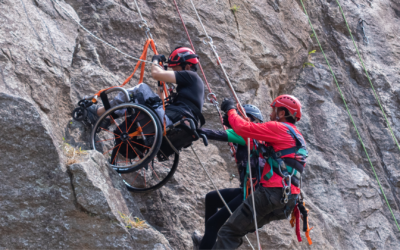
Accessibility in public spaces need of the hour, even for accessible tourism
Sri Lanka’s public services including the transport services lack the ability to provide equal access to those with a disability and the elderly. The “luxury” train service we boarded to Kandy was unable to provide wheel chair assistance to my grandfather. The steps to hop on the train should be within easy reach for those with limited mobility.
by Shari Jayawardhana
The long week end in March was a perfect opportunity to get away from the noisy, overcrowded and polluted city of Colombo. My grandfather aged 93 along with my mother and I hopped on to a privately run luxury rail service to Kandy (Peradeniya). Glossy photos of these trains and its luxurious ride along the picturesque hill country adorned many magazines and newspapers, since its commencement. The hype that was created during its introduction made me seriously think about opting for rail transport instead of traveling by vehicle. While public private partnerships such as these are beneficial for the revival of the Sri Lankan railway system, the basic needs of the travelers should be a priority.
Accessibility is an important indispensable basic human right. This is important for a country such as ours, since a large number of our soldiers and war victims are disabled. Sri Lanka also has one of the largest aging populations in South Asia. By 2013, 22% of our population will be above 60 years. A great number of youth also have debilitating conditions either by birth or due to injury.
Sri Lanka’s public services including the transport services lack the ability to provide equal access to those with a disability and the elderly. The “luxury” train service we boarded to Kandy was unable to provide wheel chair assistance to my grandfather. The steps to hop on the train should be within easy reach for those with limited mobility.
Let’s not forget the Supreme Court order which was granted for the ‘Protection of the Rights of Persons with Disabilities;’ Act No. 28 of 1996 states, “no person should be discriminated on the ground of disability and their mobility restricted in a manner which precludes or impedes them from gaining reasonable physical access to public buildings and facilities provided within such buildings, especially the toilet facilities”.
It is paramount that the key architectural elements of public buildings should be designed to address the diverse mobility needs of the population. This includes floor surfaces, pathways and corridors, doors and entrances, steps and stairs, hand rails and grab bars, ramps, toilets and car parks.
By providing the masses such basic facilities, the productivity of the country can be improved. The people with curtailed mobility will be able to live to their true potential. Their employment prospects and access to education would increase. People with disabilities and the elderly will also be able to perform their daily tasks without depending on others.
Accessibility and Tourism
Sri Lanka is aggressively marketing its self as one of the hottest tourist destinations in the world. Sri Lanka has been named as the number one destination in the world to visit in 2013 by the travel guide book and digital media publisher -“The Lonely Planet”. With the increase of tourist arrivals to the country, one would need to give serious thought to the level of service offered by us in comparison to some of the emerging tourist markets. Vietnam being an emerging market for tourism is far ahead of us in their attention to people’s basic needs, such as, offering assistance to those with limited mobility. Since Luxury train services in the country are specifically catering to a tourist market, facilities such as providing wheel chair assistance to passengers is a basic requirement.
Sri Lanka’s public services sector, including the transportation authority, needs to take urgent action in order to remedy this situation. New buildings being constructed at the very least should provide suitable entrances and toilets for those with limited mobility. Our public transport system needs to be sensitive to the needs of the disabled community of this country. We cannot boast about being the “Wonder of Asia” if we overlook the most vulnerable of populations.
Author’s profile:
The author has a Bachelor of Arts degree in Communication from Wittenberg University in Ohio, USA. She has also completed two Masters Degrees in Public Health from the University of Queensland in Australia. She is a freelance writer.
Source: The Island
Compartilhe
Use os ícones flutuantes na borda lateral esquerda desta página
Siga-nos!
Envolva-se em nosso conteúdo, seus comentários são bem-vindos!
Artigos relacionados
Teleton AACD. A pessoa com deficiência como protagonista.
Teleton AACD. A pessoa com deficiência como protagonista. Uma iniciativa internacional abraçada pelo SBT no Brasil.
Acessibilidade no ESG. Equipotel aborda o tema para o turismo.
Acessibilidade no ESG, para o mercado do turismo. Equipotel aborda a importância da inclusão da pessoa com deficiência.
Morte Sobre Rodas. Filme inclusivo foi candidato ao Oscar.
Morte Sobre Rodas. Dois protagonistas do filme, são pessoas com deficiência, um usuário de cadeira de rodas e outro com paralisia cerebral.






0 comentários